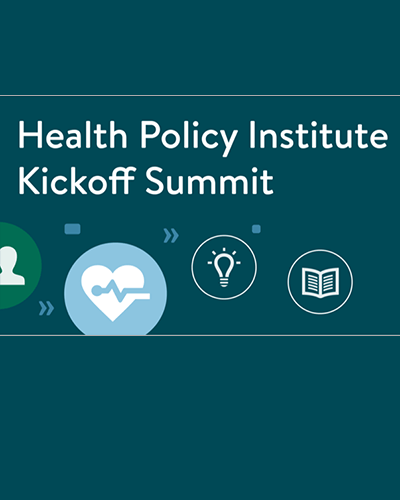With COVID-19 dominating worldwide attention in 2020, it was fortuitously prophetic that planning for a Hawaiʻi Health Policy Initiative in the College of Social Sciences started about three years ago. The reality then was clear: Those focused on health policy issues in the state were operating in their own narrowly focused silos.
These siloed groups included:
- Government entities involved in some aspect of health, including but not limited to the state departments of health, human services, education and the University of Hawaiʻi.
- Faculty researchers in the UH schools of medicine, nursing, public health and social work, and in individual colleges and schools like CSS, who independently collect data with expertise on topics ranging from the well-being of individuals and groups, to telecommunications and data bases.
- Foundations, health-care organizations and civic-minded companies that were willing and able to fund health and economic research, but seeking guidance as to where to direct that money.
The obvious question popped up: What if a single entity like a Health Policy Institute could attract more researchers with pertinent data, and enable them to share relevant information, including access to government-collected statistics? Couldn’t that dream premise ultimately result in a more effective health policy for Hawaiʻi?
A giant step toward that reality happened on January 29, 2021, when the Social Sciences Research Institute (SSRI), the research arm of the College, convened a virtual Health Policy Initiative Kickoff summit. In attendance were UH faculty and staff, healthcare professionals, and government officials and policymakers.
“The initiative’s goal is to leverage and share health research data to better care for the community, and positively impact legislation, influence policy and attract more funding for the betterment of Hawaiʻi and beyond,” said Jack Barile, SSRI Interim Director and an associate professor of psychology
“For example, most faculty have tons of data that they’ve used for their own purposes, and government has a lot of valuable data, too,” said Barile. “If there’s a way to share that respectfully and ethically, for example by organizing into faculty/government/community work groups, the result may be greater access to data for the public good.”
At the virtual summit, almost two dozen webinar speakers shared presentations on their health-related research topics, mostly focused on the worldwide scourge of COVID-19. A sampling:
Vulnerable ethnic populations. Economics Professor Ruben Juarez described how he is leading a multidisciplinary project to lessen the negative health impacts of coronavirus on Native Hawaiians and other Pacific Islanders. In particular, the team is integrating testing capacity with specific messaging, education and evaluation in rural and outlying neighborhoods.
Effective civic engagement. Dan Milz, assistant professor in the Department of Urban and Regional Planning, and the Matsunaga Institute for Peace and Conflict Resolution, explained how the pandemic has added to the challenges of governments and other public entities trying to conduct meaningful engagement virtually.
Planning in the face of disasters. Karl Kim, in his leadership roles as executive director of the National Disaster Preparedness Training Center and director of the CSS graduate program in disaster management and humanitarian assistance, outlined collaborative projects based on the themes of resilience and adaption to persistent hazards and threats.
Under SSRI, there has already been an effective melding of town and gown in 2020. That’s when First Insurance CEO Jeff Shonka told CSS Dean Denise Eby Konan that, while the company supports UHERO’s economic research, it also wanted to understand the social impacts of the health crisis. As a result, First Insurance underwrote a series of College faculty research papers on COVID-19’s impact on the health and welfare of island families, which were shared with local business and government leaders.
More such collaborations would be welcome, said Barile. “As we build out the structure of the initiative, there will be funding areas of concern that naturally develop. For example, we could look at food insecurity to identify existing gaps and barriers to food delivery service, or at the vaccination rollout, focusing on why people choose to get or reject vaccinations, and then building an effective mass media campaign to influence opinion,” he said.
“We need to form work groups of faculty and interested community members to address pressing issues like COVID-19,” Barile continued. “This way, together, we can focus on building extramural funding support, translate research findings into actionable policies and intervention, and address pressing issues. It is possible to break out of these historical silos.”
